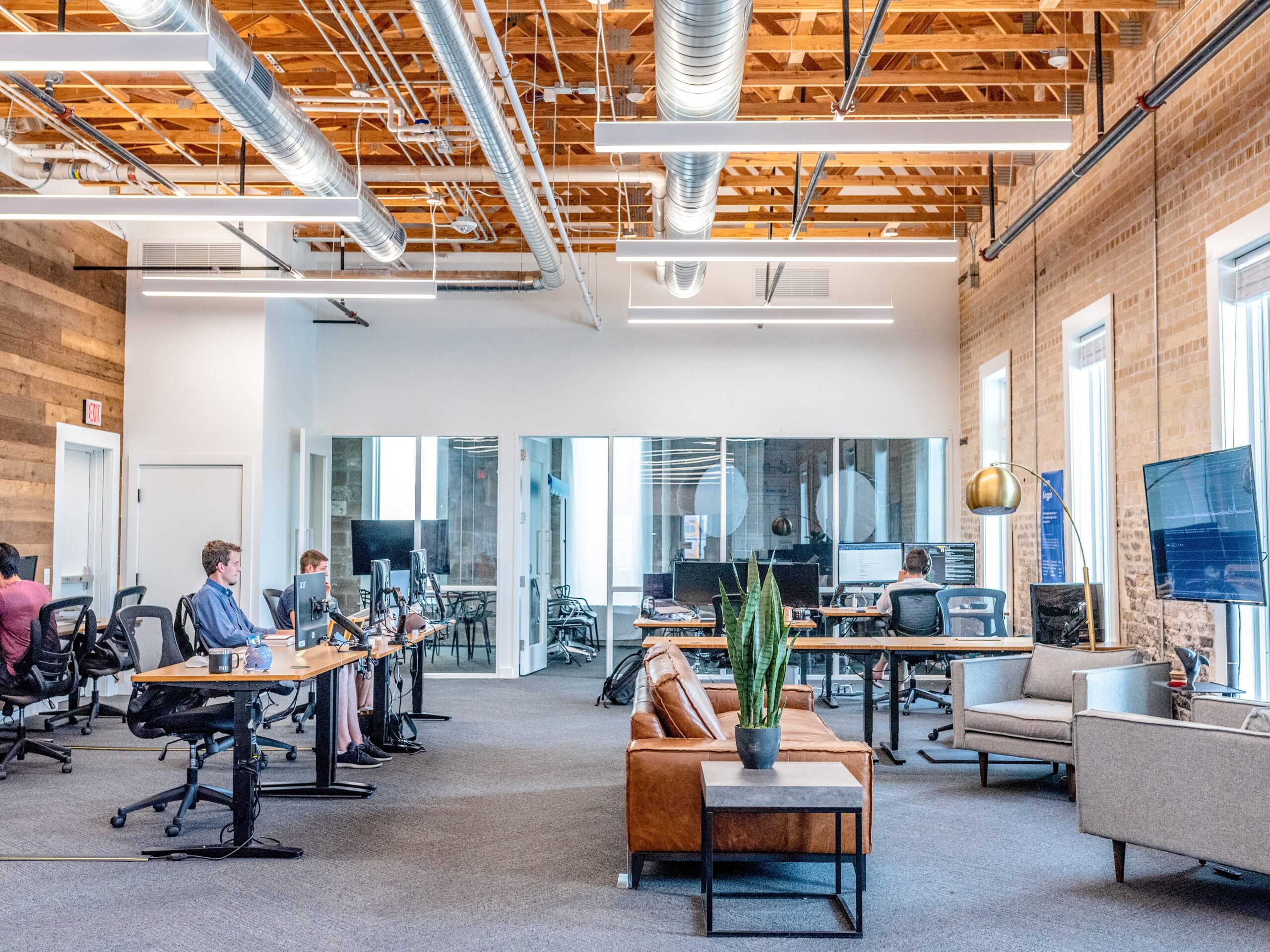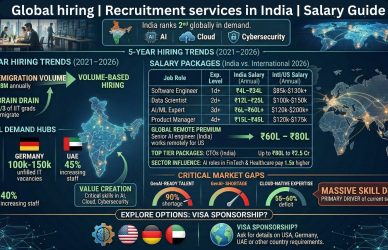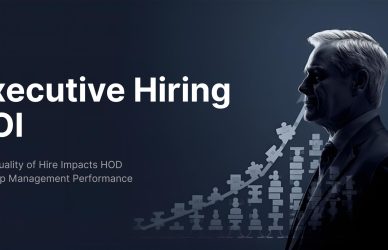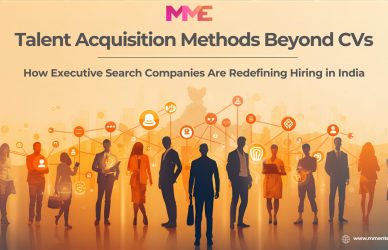Introduction: The Evolution of PEO Services in 2024
The Professional Employer Organization (PEO) industry is experiencing a significant transformation as it navigates the complexities of a post-pandemic world and an evolving global workforce. With businesses increasingly seeking innovative solutions to manage HR, payroll, and compliance functions, PEO services have emerged as an essential tool for companies looking to optimize operations, reduce costs, and enhance employee satisfaction. As we step into 2024, several key trends are shaping the future of PEO services, creating new opportunities and challenges for both service providers and their clients.
Growing Demand for PEO Services
The demand for PEO services is accelerating, driven by the need for cost-efficiency, compliance expertise, and a streamlined approach to managing HR functions. As companies expand into new markets and navigate complex employment regulations, PEOs offer a comprehensive solution that enables businesses to focus on core activities while outsourcing administrative tasks. This trend is particularly relevant for small and medium-sized enterprises (SMEs), which often lack the resources and expertise to handle these functions in-house. By partnering with PEOs, organizations can ensure compliance, mitigate risks, and provide employees with robust benefits packages, thereby enhancing their overall competitiveness.
Technological Advancements in PEO Services
Technology is playing a pivotal role in the evolution of PEO services. With advancements in HR technology, such as AI-powered recruitment tools, cloud-based payroll systems, and data-driven compliance management, PEOs are now better equipped to offer a more personalized and efficient service. These technologies not only automate repetitive tasks but also provide valuable insights that help organizations make informed decisions. In 2024, the integration of technology into PEO services is expected to further enhance the quality of service, improve accuracy, and create a more seamless experience for clients and their employees.
Adapting to Remote and Hybrid Work Models
The shift to remote and hybrid work models has significantly impacted how PEO services are delivered. As more organizations embrace flexible work arrangements, PEOs are adapting their offerings to support remote workforce management, including virtual onboarding, remote payroll processing, and compliance with multi-state or international employment laws. This evolution is helping companies attract and retain top talent while maintaining compliance and operational efficiency.
Emphasis on Employee Wellness and Experience
Employee wellness has become a central focus for businesses in 2024, and PEOs are responding by expanding their services to include wellness programs, mental health support, and comprehensive benefits packages. This shift is helping organizations create a more engaged and satisfied workforce, which in turn boosts productivity and retention rates. By partnering with PEOs, companies can offer competitive benefits that support their employees’ well-being, ultimately fostering a healthier workplace culture.

Trend 1: Integration of Advanced HR Technology
One of the most significant trends shaping PEO services in 2024 is the integration of advanced HR technology. As companies increasingly look to optimize their human resources and streamline operations, PEOs are evolving from being administrative support entities to becoming strategic partners that offer cutting-edge solutions. By leveraging modern technologies like artificial intelligence (AI), machine learning, and cloud-based platforms, PEOs are redefining the way HR services are delivered, providing enhanced capabilities that drive efficiency, improve decision-making, and offer a superior employee experience.
Leveraging AI for Enhanced Workforce Planning
Artificial intelligence is transforming workforce planning by providing PEOs with the ability to analyze vast amounts of employee data and predict future workforce needs. With AI-driven predictive analytics, PEOs can identify trends related to employee turnover, productivity, and engagement, enabling businesses to proactively address potential issues. For example, if the data suggests an increase in employee turnover in a particular department, PEOs can recommend targeted interventions, such as training programs or leadership development initiatives, to retain top talent. This data-driven approach allows companies to be more strategic in their workforce management, optimizing resource allocation and ensuring that they are better prepared to meet future business challenges.
Automated Onboarding and Employee Lifecycle Management
Automation is playing a crucial role in improving the efficiency of HR processes. PEOs are utilizing automated systems to streamline the entire employee lifecycle, from recruitment and onboarding to offboarding. Automated onboarding platforms, for example, enable new hires to complete necessary documentation, access training materials, and connect with team members in a seamless manner, reducing the administrative burden on HR teams. Additionally, automation extends to performance management, where AI-powered tools can track employee goals, monitor progress, and provide real-time feedback. This not only accelerates the onboarding process but also enhances the overall employee experience by fostering a sense of engagement and connectivity from day one.
AI-Powered Talent Acquisition and Recruitment
Talent acquisition is another area where advanced HR technology is making a substantial impact. PEOs are employing AI-driven tools to enhance the recruitment process by screening candidates more effectively, identifying potential skill gaps, and matching the best talent to specific roles. AI algorithms can analyze resumes, evaluate qualifications, and even conduct initial candidate assessments through chatbots, significantly reducing the time and effort required for recruitment. This enables PEOs to attract high-quality talent faster and support businesses in building a stronger workforce that aligns with their strategic goals. Moreover, AI-based tools provide valuable insights into the effectiveness of recruitment strategies, helping companies refine their approach and achieve better outcomes.
Cloud-Based Solutions for Seamless HR Operations
Cloud technology is at the forefront of PEO service transformation, providing scalable, secure, and flexible solutions for HR operations. Cloud-based platforms enable PEOs to centralize all HR-related data, making it easily accessible to both employers and employees. This centralization enhances collaboration, allows for real-time updates, and ensures compliance with data security regulations. PEOs are using cloud-based systems to manage payroll, benefits administration, time tracking, and employee records, all from a single integrated platform. This not only reduces administrative overhead but also provides businesses with a comprehensive view of their HR functions, leading to better decision-making and improved operational efficiency.
Real-Time Employee Support with AI-Powered Chatbots
AI-powered chatbots are revolutionizing employee support by providing instant assistance for routine HR queries. These chatbots can handle questions related to benefits, payroll, leave policies, and more, freeing up HR personnel to focus on complex issues that require human intervention. Available 24/7, chatbots enhance the employee experience by delivering accurate and timely information. They can also provide personalized recommendations based on employees’ roles and preferences, making HR interactions more relevant and effective. As PEOs continue to integrate AI-powered chatbots into their service offerings, companies can expect a higher level of support that caters to the diverse needs of a modern, tech-savvy workforce.
Data-Driven Insights for Strategic Decision-Making
The integration of advanced HR technology is enabling PEOs to offer data-driven insights that help businesses make informed decisions about workforce management. With the ability to track and analyze key performance indicators (KPIs) such as employee engagement, absenteeism, and performance metrics, PEOs provide companies with a clear understanding of their workforce dynamics. These insights empower businesses to implement strategic HR initiatives, improve employee retention, and drive overall organizational performance. By leveraging technology to deliver actionable intelligence, PEOs are positioning themselves as valuable partners in the strategic growth of their clients.

Trend 2: Focus on Remote and Hybrid Work Models
The adoption of remote and hybrid work models has significantly transformed the way businesses operate, creating new challenges and opportunities for workforce management. As companies continue to embrace flexible work arrangements in 2024, Professional Employer Organizations (PEOs) are stepping up to provide comprehensive support and solutions that enable businesses to thrive in this new work environment. PEOs are helping organizations adapt by offering technology solutions for managing remote teams, developing flexible HR policies, and implementing strategies that foster engagement and productivity among remote employees. This trend is reshaping the PEO landscape, making these service providers indispensable partners in the remote work evolution.
Supporting Remote Workforce Management
One of the primary ways PEOs are adapting to the rise of remote and hybrid work is by providing technology solutions that streamline remote workforce management. These solutions include cloud-based HR platforms that enable businesses to manage payroll, benefits, and compliance from a centralized location, regardless of where employees are based. Additionally, PEOs offer tools for tracking employee performance, managing remote onboarding, and facilitating communication between dispersed teams. By leveraging technology, PEOs are making it easier for businesses to maintain operational efficiency while managing a remote workforce.
PEOs are also implementing strategies to address some of the unique challenges that come with remote work, such as maintaining employee engagement and fostering a sense of team cohesion. Virtual engagement programs, remote training sessions, and online wellness initiatives are just some of the ways PEOs are helping companies create a positive remote work culture. These programs are designed to keep employees connected, motivated, and aligned with the organization’s goals, regardless of their physical location.
Implementing Flexible HR Policies
The shift to remote and hybrid work models has necessitated the creation of more flexible HR policies that accommodate diverse working arrangements. PEOs are at the forefront of this change, assisting businesses in developing policies that address the needs of a remote workforce. This includes revising leave policies, establishing guidelines for remote work hours, and defining expectations for remote and hybrid employees. By providing guidance on best practices for remote work, PEOs are helping companies create an environment where employees feel supported and empowered.
In addition to creating new policies, PEOs are also ensuring that businesses remain compliant with changing labor regulations related to remote work. This is particularly important as governments around the world introduce new laws and regulations to govern the rights and responsibilities of remote workers. PEOs keep businesses informed of these changes and help them implement the necessary adjustments to stay compliant, thereby reducing the risk of legal complications.
Enabling Global Talent Acquisition and Compliance
The rise of remote work has made it possible for businesses to tap into a global talent pool, allowing them to hire the best talent from anywhere in the world. However, managing a geographically diverse workforce comes with its own set of challenges, particularly when it comes to compliance with international labor laws and regulations. PEOs are playing a critical role in helping organizations navigate these complexities by offering expertise in global HR compliance and multi-jurisdictional payroll management.
PEOs provide support for hiring and managing employees in different countries, ensuring that businesses adhere to local employment laws, tax regulations, and benefits requirements. This includes handling employment contracts, managing employee benefits, and ensuring that companies comply with country-specific labor standards. By partnering with PEOs, businesses can confidently expand their remote workforce without having to worry about the intricacies of international compliance.
Facilitating “Work-from-Anywhere” Policies
As the concept of “work-from-anywhere” gains traction, PEOs are adapting their services to support businesses that want to offer this level of flexibility to their employees. This involves providing the infrastructure necessary for seamless remote work, such as secure VPNs, cloud-based collaboration tools, and virtual meeting platforms. Additionally, PEOs are advising companies on how to structure compensation and benefits for employees based in different locations, taking into account factors such as cost of living and local market conditions.
The support provided by PEOs is crucial for businesses looking to implement work-from-anywhere policies without compromising on compliance, security, or employee satisfaction. By offering expertise and solutions that address the complexities of managing a dispersed workforce, PEOs are enabling businesses to attract and retain top talent in an increasingly competitive job market.

Trend 3: Emphasis on Compliance and Risk Mitigation
Compliance has always been a cornerstone of Professional Employer Organization (PEO) services. However, in 2024, the need for comprehensive compliance management has reached a new level of importance as the regulatory environment becomes increasingly complex. With businesses facing a myriad of new labor laws, evolving data protection regulations, and changing tax policies, staying compliant has become more challenging than ever. PEOs are stepping up to provide comprehensive compliance and risk management solutions that help businesses navigate this intricate landscape while mitigating potential risks.
The ever-changing regulatory environment poses a significant challenge for businesses, especially those operating across multiple states or countries. New labor laws, minimum wage requirements, anti-discrimination policies, and data privacy regulations are being introduced at a rapid pace, making it difficult for companies to keep up. PEOs are responding to this challenge by offering specialized expertise in compliance management, ensuring that businesses adhere to local, state, and federal laws.
PEOs track regulatory changes in real-time and proactively update their clients on necessary adjustments to policies, contracts, and procedures. This includes maintaining up-to-date employee handbooks, implementing new HR policies that align with legal requirements, and conducting regular audits to ensure compliance. By partnering with PEOs, businesses can reduce their administrative burden and minimize the risk of non-compliance, which could otherwise lead to costly fines and legal disputes.
Data Protection and Privacy Compliance
With the rise of digital transformation and remote work, data protection and privacy have become critical areas of concern for businesses. In 2024, new data privacy regulations, such as the General Data Protection Regulation (GDPR) in Europe and the California Consumer Privacy Act (CCPA) in the U.S., are enforcing stricter guidelines on how companies handle and protect personal data. PEOs are helping businesses navigate these regulations by offering data protection compliance services that include secure data storage solutions, regular data audits, and employee training on data privacy best practices.
PEOs also assist companies in developing comprehensive data protection policies that cover the collection, storage, and sharing of personal information. By ensuring compliance with these regulations, PEOs help businesses build trust with their clients and employees, reduce the risk of data breaches, and avoid hefty penalties associated with non-compliance.
Enhanced Risk Mitigation Strategies
In addition to compliance management, PEOs are enhancing their risk mitigation capabilities by offering a range of services designed to protect businesses from potential liabilities. This includes conducting employee background checks to verify qualifications and reduce the risk of negligent hiring. By screening potential hires thoroughly, PEOs help companies avoid costly legal complications and reputational damage.
PEOs are also implementing workplace safety programs that promote a safe and healthy work environment. These programs include safety training sessions, regular workplace inspections, and the development of safety protocols that comply with Occupational Safety and Health Administration (OSHA) standards. By focusing on workplace safety, PEOs help reduce the incidence of workplace accidents and injuries, which in turn lowers workers’ compensation costs and minimizes liability.
Offering Comprehensive Liability Insurance
PEOs provide an additional layer of risk protection by offering liability insurance coverage to their clients. This coverage can include general liability, employment practices liability, and workers’ compensation insurance, which protect businesses from potential claims related to workplace accidents, wrongful termination, harassment, or discrimination. PEOs manage the entire process, from obtaining insurance policies to handling claims, allowing businesses to focus on their core operations without worrying about unforeseen liabilities.
Moreover, PEOs offer guidance on implementing best practices for reducing liability risks, such as creating anti-harassment policies, conducting regular employee training, and maintaining thorough documentation of HR processes. By providing these services, PEOs enable businesses to operate with confidence, knowing that they are well-protected against potential legal and financial risks.
Focus on Multi-Jurisdictional Compliance
For businesses operating in multiple regions or countries, maintaining compliance with varying local regulations can be a daunting task. PEOs are uniquely positioned to manage multi-jurisdictional compliance by leveraging their in-depth knowledge of regional labor laws and regulations. They provide guidance on issues such as payroll compliance, employee benefits administration, and tax reporting in different jurisdictions. This ensures that businesses remain compliant no matter where their employees are located, reducing the risk of cross-border compliance violations.
By effectively managing compliance and risk mitigation, PEOs enable companies to focus on their core operations, pursue growth opportunities, and maintain a competitive edge in today’s dynamic business environment.

Trend 4: Increased Focus on Employee Wellness and Benefits
Employee wellness has emerged as a top priority for businesses as they recognize its critical impact on productivity, engagement, and retention. In response, Professional Employer Organizations (PEOs) are expanding their benefits offerings to provide a more holistic approach to employee wellness. In 2024, PEOs are increasingly focused on delivering comprehensive wellness programs that address not only physical health but also mental and financial well-being. This trend is being driven by a growing understanding of the correlation between employee well-being and organizational success, as well as the need to remain competitive in a tight labor market.
Comprehensive Wellness Programs for a Healthier Workforce
To support the well-being of employees, PEOs are developing comprehensive wellness programs that go beyond traditional healthcare benefits. These programs often include initiatives such as mental health support, fitness programs, and stress management workshops. For example, many PEOs are partnering with mental health professionals to offer confidential counseling services and therapy sessions as part of employee assistance programs (EAPs). These services provide employees with a safe space to address personal or professional challenges, helping reduce absenteeism and improve overall job satisfaction.
In addition to mental health support, fitness programs are becoming a key component of PEO wellness offerings. From subsidized gym memberships and online fitness classes to corporate wellness challenges, these initiatives encourage employees to adopt healthier lifestyles. By promoting physical health, PEOs are helping companies reduce healthcare costs and create a more energized and engaged workforce.
Financial Wellness Initiatives
Financial stress is a major contributor to employee burnout and disengagement, and PEOs are addressing this issue by offering financial wellness initiatives. These programs provide employees with access to financial planning resources, budgeting tools, and workshops on topics like retirement planning and debt management. By equipping employees with the knowledge and tools to manage their finances effectively, PEOs are helping reduce financial stress, which in turn leads to improved productivity and job satisfaction.
Additionally, many PEOs are introducing employee benefits such as employer-sponsored retirement plans, 401(k) matching programs, and flexible spending accounts (FSAs) to further support financial wellness. These benefits not only enhance employees’ financial security but also make companies more attractive to top talent who are seeking robust compensation packages that go beyond salary.
Personalized Health Plans and Telemedicine Options
As employee expectations around health benefits evolve, PEOs are adapting by offering more personalized health plans that cater to individual needs. This trend involves providing employees with a range of options, such as high-deductible health plans (HDHPs), health savings accounts (HSAs), and health reimbursement arrangements (HRAs). By allowing employees to choose plans that best suit their circumstances, PEOs are empowering them to take control of their health and wellness.
Telemedicine is another significant offering that has gained traction in recent years, and PEOs are now incorporating telehealth options into their benefits packages. Telemedicine provides employees with convenient access to healthcare professionals from the comfort of their homes, making it easier for them to receive medical advice, prescriptions, and treatment without the need to visit a doctor’s office. This option is particularly beneficial for remote employees or those with busy schedules, as it saves time and promotes a proactive approach to healthcare.
Holistic Approach to Employee Wellness
PEOs are increasingly adopting a holistic approach to employee wellness, recognizing that true well-being encompasses more than just physical health. In 2024, PEOs are expanding their offerings to include benefits like flexible work arrangements, paid time off for volunteering, and comprehensive wellness platforms that integrate physical, mental, and financial wellness resources. These platforms provide employees with access to wellness content, self-assessment tools, and personalized recommendations, allowing them to engage with their well-being in a more meaningful way.
The holistic approach to wellness also includes fostering a positive work-life balance, which has become a key factor in employee satisfaction. PEOs are supporting this by helping businesses implement flexible work policies, including remote work options, flexible hours, and parental leave programs. By prioritizing work-life balance, PEOs are helping companies create a supportive and inclusive work environment that values employee well-being.
Competitive Advantage in Talent Acquisition and Retention
As businesses compete to attract and retain top talent in a competitive labor market, offering comprehensive wellness and benefits packages has become a crucial differentiator. PEOs are enabling companies to offer these competitive benefits, which may be challenging to implement independently, especially for small and medium-sized businesses. By partnering with PEOs, companies can provide a level of benefits and wellness support that rivals those offered by larger corporations, making them more attractive to prospective employees.
By focusing on employee wellness and enhancing their benefits packages, PEOs are not only supporting employee well-being but also helping businesses build a more engaged, productive, and loyal workforce that contributes to long-term organizational success.

Trend 5: Expansion of Global PEO Services
Globalization is reshaping the business landscape, making it more interconnected and dynamic. As companies seek to expand beyond their domestic markets, the demand for Professional Employer Organizations (PEOs) with global capabilities is rising rapidly. In 2024, the expansion of global PEO services has emerged as a key trend, enabling businesses to navigate the complexities of international employment and operations. Global PEOs are offering expertise in cross-border employment, providing valuable guidance on local labor laws, tax regulations, and cultural nuances. This trend is particularly significant for small and medium-sized enterprises (SMEs) that want to tap into new markets without establishing a physical presence or legal entities in multiple countries.
Enabling Seamless International Expansion
The growth of global PEO services is making international expansion more accessible for businesses of all sizes. For many companies, expanding into new markets involves navigating a web of complex regulatory requirements, understanding local labor laws, and managing tax obligations. Establishing legal entities in each target market can be time-consuming, costly, and fraught with compliance risks. Global PEOs eliminate these barriers by acting as an employer of record (EOR), hiring employees on behalf of their clients and managing all HR-related functions.
By partnering with global PEOs, companies can hire talent in new markets quickly and efficiently without the need to set up local subsidiaries. This allows businesses to focus on growth and operational strategies while the PEO handles the intricacies of employment contracts, payroll processing, and compliance management. As a result, international expansion becomes a smoother and less risky endeavor, opening up new opportunities for businesses to scale globally.
Expertise in Cross-Border Compliance and Regulations
One of the biggest challenges for businesses expanding internationally is staying compliant with local employment regulations. Labor laws, tax requirements, and benefits standards can vary significantly from one country to another, and failing to comply with these regulations can result in fines, legal complications, and reputational damage. Global PEOs possess in-depth knowledge of regional labor laws and are equipped to ensure compliance across multiple jurisdictions.
Global PEOs provide guidance on critical compliance issues such as employment contracts, minimum wage requirements, termination procedures, and employee benefits. They also manage multi-jurisdictional payroll processing, ensuring that employees are paid accurately and on time in accordance with local laws. This expertise allows businesses to operate confidently in foreign markets, knowing that their HR functions are being managed in full compliance with local regulations.
Supporting SMEs in International Growth
The expansion of global PEO services is particularly beneficial for small and medium-sized enterprises (SMEs) that want to explore international growth opportunities. Traditionally, SMEs have faced significant challenges when entering new markets due to limited resources and the complexities of managing a geographically dispersed workforce. Global PEOs level the playing field by offering scalable solutions that enable SMEs to access new markets without the need for significant upfront investments.
For SMEs, global PEOs provide a cost-effective alternative to setting up legal entities in each country. This approach allows them to hire international talent, establish a local presence, and build brand recognition in new markets with minimal risk. By handling administrative tasks such as payroll, benefits administration, and compliance, global PEOs free up resources for SMEs to focus on strategic initiatives that drive business growth.
Managing Cultural Nuances and Local Business Practices
Understanding cultural nuances and local business practices is crucial for success in international markets. Global PEOs not only offer compliance support but also provide valuable insights into the cultural and social norms of different regions. This includes advice on how to structure employee benefits packages, manage employee relations, and navigate the expectations of local talent.
For instance, certain benefits such as health insurance or retirement plans may be more highly valued in some countries than others. Global PEOs can tailor benefits offerings to align with local preferences, making companies more attractive employers to top talent in each market. This cultural understanding also helps businesses foster positive relationships with employees and stakeholders, enhancing their ability to succeed in diverse markets.
Facilitating “Work-from-Anywhere” Policies Across Borders
As remote and hybrid work models continue to gain popularity, global PEOs are enabling businesses to implement “work-from-anywhere” policies across borders. This trend allows companies to access a wider talent pool and create a more flexible work environment. However, managing remote employees across multiple countries presents unique challenges, such as compliance with different tax and employment laws.
Global PEOs handle these complexities by providing the infrastructure needed to manage a remote workforce effectively, regardless of location. This includes ensuring compliance with local regulations, managing cross-border payroll, and offering support for setting up remote work arrangements. As a result, businesses can offer greater flexibility to their employees while maintaining compliance and operational efficiency.
By expanding their global capabilities, PEOs are enabling companies to navigate the challenges of international expansion, access new markets, and manage a global workforce with ease. This trend is set to play a pivotal role in shaping the future of the PEO industry as businesses continue to explore global growth opportunities.

Trend 6: Adoption of AI and Automation in HR Processes
The adoption of artificial intelligence (AI) and automation is revolutionizing HR processes across industries, and Professional Employer Organizations (PEOs) are at the forefront of this transformation. As technology becomes more sophisticated, PEOs are increasingly leveraging AI and automation to streamline HR operations, reduce administrative burden, and improve service delivery. By automating repetitive tasks such as payroll processing, employee data management, and benefits administration, PEOs are enabling businesses to achieve greater efficiency and cost-effectiveness in their HR functions.
Streamlining Administrative Tasks with AI and Automation
One of the key advantages of integrating AI and automation into HR processes is the ability to handle repetitive administrative tasks with greater speed and precision. PEOs are utilizing AI-powered platforms to automate payroll processing, ensuring that employees are paid accurately and on time while minimizing the risk of human error. Automation also simplifies employee data management by enabling real-time updates and seamless synchronization across various HR systems. This eliminates the need for manual data entry and reduces the chances of discrepancies.
Benefits administration is another area where AI and automation are making a significant impact. PEOs are using automated systems to manage employee benefits enrollment, track eligibility, and handle changes to benefits plans. By automating these processes, PEOs are not only saving time but also providing employees with a more user-friendly and efficient experience.
Enhancing Recruitment and Talent Acquisition
AI is transforming the way PEOs handle recruitment and talent acquisition. Traditional recruitment processes are often time-consuming and require HR teams to manually sift through numerous resumes and applications. AI-powered tools, such as resume screening software, can automatically scan and filter resumes based on predefined criteria, making it easier to identify qualified candidates quickly. This speeds up the recruitment process and reduces the time-to-hire.
PEOs are also using AI to automate interview scheduling, reducing the back-and-forth communication between candidates and recruiters. Additionally, AI-driven chatbots can engage with candidates, answer frequently asked questions, and conduct preliminary assessments, providing a more efficient and engaging recruitment experience. By automating these routine tasks, PEOs allow HR professionals to focus on strategic activities such as candidate relationship management and employer branding.
Improving Employee Engagement and Experience
AI and automation are not only enhancing administrative efficiency but also playing a pivotal role in improving employee engagement and experience. PEOs are using AI-powered tools to conduct employee surveys, analyze feedback, and identify trends related to employee satisfaction and morale. These insights enable HR teams to take proactive measures to address concerns and improve the overall employee experience.
Automation is also being used to streamline the onboarding process, providing new hires with personalized onboarding plans and automating the distribution of training materials. AI-driven platforms can guide employees through the onboarding journey, answer questions, and provide real-time support, creating a smoother and more engaging onboarding experience.
Driving Strategic HR Decision-Making
The adoption of AI and automation is enabling PEOs to provide data-driven insights that support strategic HR decision-making. AI algorithms can analyze large volumes of HR data to identify patterns, predict future workforce trends, and offer recommendations for improving HR strategies. For example, AI can predict employee turnover, helping businesses implement retention strategies before issues arise.
By leveraging these technologies, PEOs are not only enhancing their service offerings but also positioning themselves as strategic partners that provide valuable insights to drive business growth. As AI and automation continue to evolve, they are expected to play an even greater role in the PEO industry, transforming HR processes and enabling businesses to operate with increased agility and effectiveness.

Trend 7: Data-Driven Decision Making and Analytics
In 2024, data-driven decision making is emerging as a cornerstone of Professional Employer Organization (PEO) services, enabling businesses to leverage data analytics for deeper insights into workforce trends, employee performance, and HR efficiency. As the volume and variety of data generated by HR processes continue to grow, PEOs are adopting advanced analytics tools to provide clients with valuable information that drives better decision-making. By using data analytics, PEOs are helping organizations optimize workforce planning, forecast future hiring needs, and enhance overall HR strategies. This trend marks a shift in the role of PEOs from traditional service providers to strategic partners in business growth and workforce management.
Leveraging Data Analytics for Workforce Insights
PEOs are utilizing data analytics to gain a comprehensive understanding of workforce dynamics. By analyzing data related to employee performance, turnover rates, absenteeism, and engagement levels, PEOs can identify patterns and trends that may not be immediately visible through traditional reporting methods. These insights allow businesses to pinpoint potential areas of concern, such as departments with high turnover rates or teams with declining productivity, and take proactive measures to address these issues.
For example, data analytics can help PEOs identify skill gaps within the organization, enabling HR teams to develop targeted training and development programs. Additionally, by analyzing historical hiring data, PEOs can forecast future talent needs and adjust recruitment strategies accordingly. This ensures that businesses are better prepared to meet their workforce requirements and can attract the right talent at the right time.
Enhancing HR Efficiency and Optimization
Data-driven decision making is not limited to workforce planning and talent management. PEOs are also using data analytics to optimize HR processes and improve operational efficiency. By tracking key performance indicators (KPIs) such as time-to-hire, cost-per-hire, and employee onboarding success rates, PEOs can identify bottlenecks and inefficiencies in HR workflows. This enables them to recommend process improvements that save time and resources, resulting in a more streamlined and effective HR function.
In addition, PEOs can use predictive analytics to anticipate HR challenges before they arise. For instance, predictive models can forecast employee turnover, allowing businesses to implement retention strategies proactively. By leveraging these insights, PEOs help organizations maintain a stable and engaged workforce, reducing the costs and disruptions associated with high turnover.
Providing Strategic HR Guidance
The use of data analytics is enabling PEOs to provide clients with strategic HR guidance that goes beyond traditional transactional services. With access to real-time data and advanced analytics tools, PEOs can deliver actionable recommendations that align with the client’s business objectives. This includes advising on workforce planning, compensation strategies, employee engagement initiatives, and compliance risk management.
For example, PEOs can use data to benchmark compensation and benefits packages against industry standards, helping businesses remain competitive in attracting top talent. They can also analyze employee feedback and engagement data to recommend initiatives that boost morale and productivity. By offering these strategic insights, PEOs are positioning themselves as valuable partners in helping businesses achieve sustainable growth and success.
Real-Time Data for Informed Decision-Making
Access to real-time data is another critical factor driving the adoption of data-driven decision making in PEO services. With cloud-based HR platforms and analytics tools, PEOs can provide businesses with real-time visibility into their workforce metrics. This allows organizations to make informed decisions quickly, respond to emerging trends, and adapt their HR strategies as needed.
By leveraging real-time data, businesses can stay ahead of shifts in workforce dynamics, anticipate changes in employee expectations, and remain agile in a constantly evolving market. As data-driven decision making becomes more prevalent in 2024, PEOs are set to play a crucial role in helping organizations harness the power of data to drive strategic growth and improve overall HR performance.

Conclusion: Embracing the Future of PEO Services
As we move into 2024, the Professional Employer Organization (PEO) industry is set for substantial growth and transformation. PEOs are evolving rapidly, adopting new technologies, expanding global capabilities, and providing comprehensive solutions that cater to the diverse needs of modern businesses. The trends highlighted in this article, such as the integration of advanced HR technology, the focus on remote and hybrid work models, and the expansion into global markets, underscore the pivotal role that PEOs will play in shaping the future of workforce management.
Shaping the Future of Workforce Management
The evolving PEO landscape is not just about streamlining HR functions or reducing administrative burdens. PEOs are becoming strategic partners that drive business success by offering innovative solutions tailored to the unique challenges of a globalized, technology-driven workplace. Through the adoption of AI and automation, enhanced compliance and risk management services, and a focus on employee wellness and engagement, PEOs are enabling businesses to build resilient, adaptable, and high-performing teams.
A Strategic Partner for Business Growth
For businesses seeking to maintain a competitive edge in an ever-changing environment, partnering with a PEO that understands these emerging trends is crucial. The ability of PEOs to offer data-driven insights, compliance expertise, and global HR solutions allows companies to focus on their core operations while leaving complex HR tasks in the hands of experts. This strategic partnership can help organizations navigate market uncertainties, reduce costs, and optimize workforce planning, all of which are essential for long-term growth and sustainability.
Leveraging PEO Services for a Thriving Workforce
By embracing the latest trends in PEO services, companies can significantly enhance their HR capabilities. From leveraging advanced HR technology for efficiency and automation to providing comprehensive wellness programs and benefits that attract and retain top talent, PEOs are empowering businesses to create a thriving and engaged workforce. As the PEO industry continues to evolve, businesses that stay ahead of these trends will be better positioned to succeed in 2024 and beyond.
In conclusion, the future of PEO services is bright and full of opportunities. By partnering with forward-thinking PEOs that understand and embrace these trends, businesses can transform their HR functions, overcome workforce challenges, and achieve their strategic goals with confidence.




